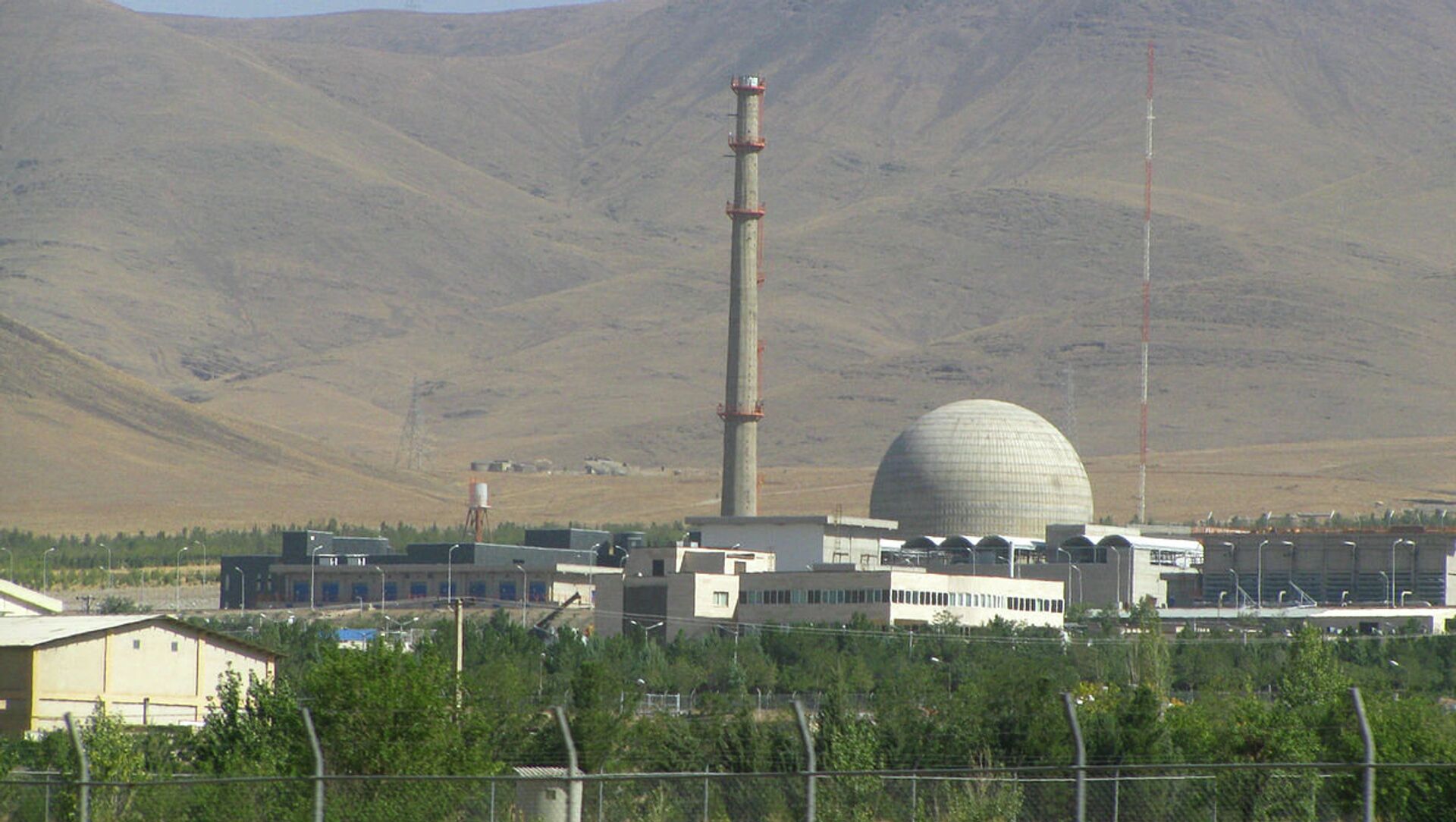Scientists are preparing for a “cold test” of the IR-40 heavy water reactor at Arak, the Atomic Energy Organization of Iran (AEOI) said on Friday. The facility was formerly capable of producing enough weapons-grade plutonium for roughly two nuclear weapons per year, but Tehran agreed to redesign it as part of the 2015 nuclear deal.
AEOI spokesperson Behrouz Kamalvandi told reporters the test, which includes the startup of fluids systems and support systems, would begin soon after the Iranian new year, which begins on Sunday.
The test, he said “will be prelude to its full commissioning a year later. This means we have fulfilled a range of required tasks in the fields of fuel, storage, and etc.”
Kamalvandi noted that “enrichment [of uranium] is among the AEOI’s most important activities, but the organization is actively at work in other sectors as well. Enrichment may have come under the spotlight due to political issues, but work is well under way in other sectors as well.”
Once active, the reactor will produce isotopes for use in the medical and agricultural fields.
Heavy water, a rare and special type of water formed from deuterium or “heavy hydrogen” instead of regular hydrogen, is useful for a number of civilian purposes, such as research in the biological and biochemical fields and the production of tritium, the material used in self-powered lighting. However, it can also be used to produce weapons-grade plutonium from unrefined uranium or spent uranium fuel.
As a consequence, part of the Joint Comprehensive Plan of Action (JCPOA) Iran agreed to in 2015 mandated that the Arak plant be shut down and reconfigured so as to be unable to produce plutonium-239 to be used for a nuclear weapon.
In 2018, the US unilaterally pulled out of the deal, accusing Iran of violating its terms and reimposing the economic sanctions the JCPOA had lifted. However, the other parties to the agreement - the UK, France, Germany, European Union, Russia and China - dissented and remained in the deal, albeit still bowing to US demands to curb trade with Iran.
“Following America’s withdrawal, the work on redesigning the Arak reactor slowed down, but the Chinese continued [the job,] and we ourselves, besides the Chinese, tried to advance the project since Iran is the main entrepreneur after all,” Kamalvandi noted on Friday.
However, as the situation has persisted, Tehran has taken steps to reduce its commitments to the JCPOA in an attempt to pressure Washington into returning to the deal, increasing the quality and quantity of uranium it has refined, but not to high enough quality to produce a nuclear weapon. The Iranian government has disavowed interest in a nuclear weapon, saying it wants to build new nuclear power plants.
Earlier this week, the International Atomic Energy Agency (IAEA) reported that Iran had begun operating a new cascade of the advanced IR-4 centrifuges in a protected underground facility at the Natanz Fuel Enrichment Plant in violation of the deal. The new centrifuges can refine uranium about four times faster than the older IR-1 devices, but are far from the most efficient centrifuges Iran has been developing.
The new Biden administration, which took office in January, for continuing on the path laid out by his predecessor, Donald Trump. US President Joe Biden has insisted Tehran must be the first to return to the confines of the deal, while Iran has said it must be the US who goes first, since it was the party who broke the deal in the first place.
“The perception of the ruling party in America is that it can once again put pressure on Iran, but if they are wise enough, they have to do a calculation and see what all the pressure exerted by Trump brought about,” Kamalvandi said.
“They may be thinking that Iran is in a position of weakness and that may have been the reason why they are prolonging the [nuclear] issue,” he added. “Nevertheless, it is certain to us that our position is righteous and the future is guaranteed for us.”




